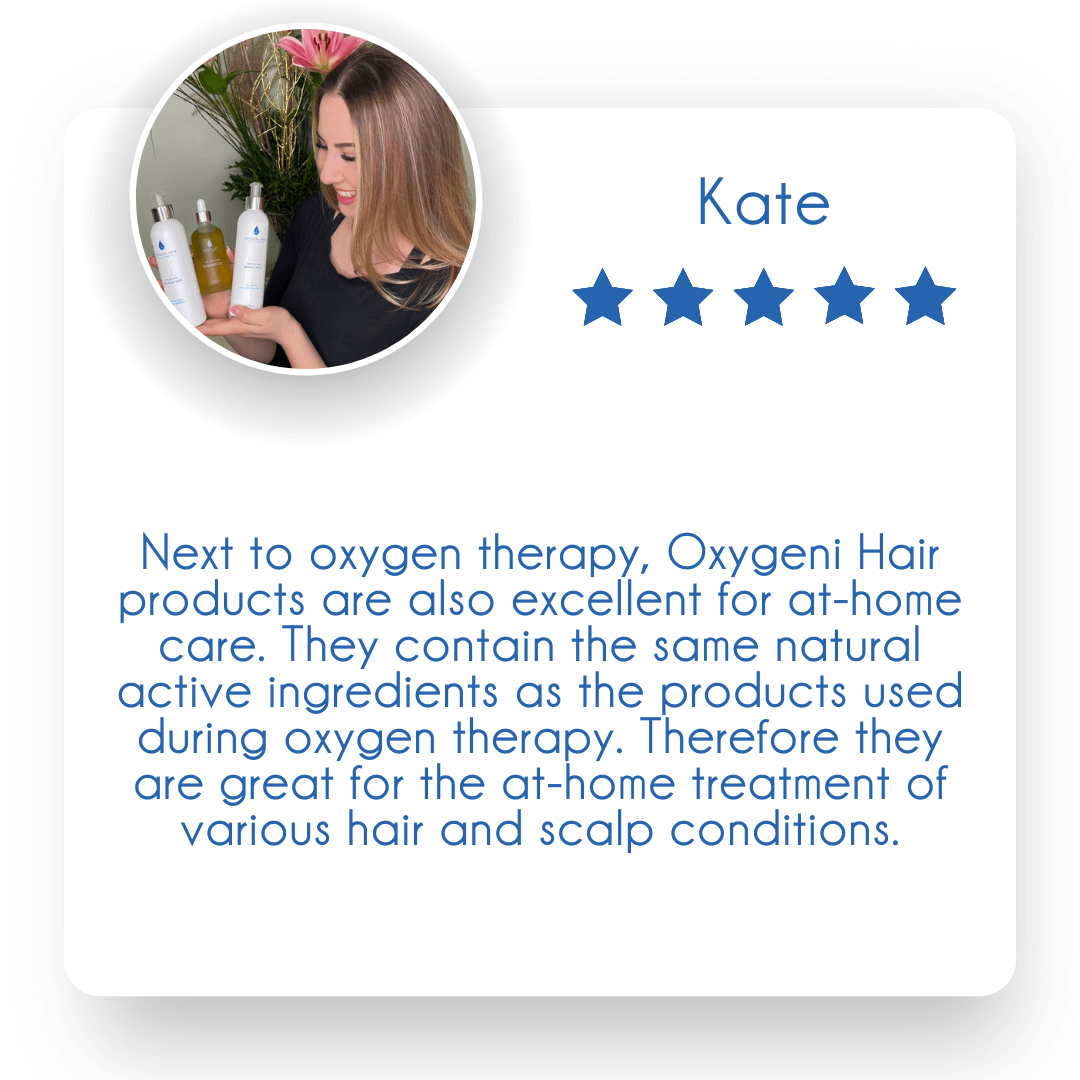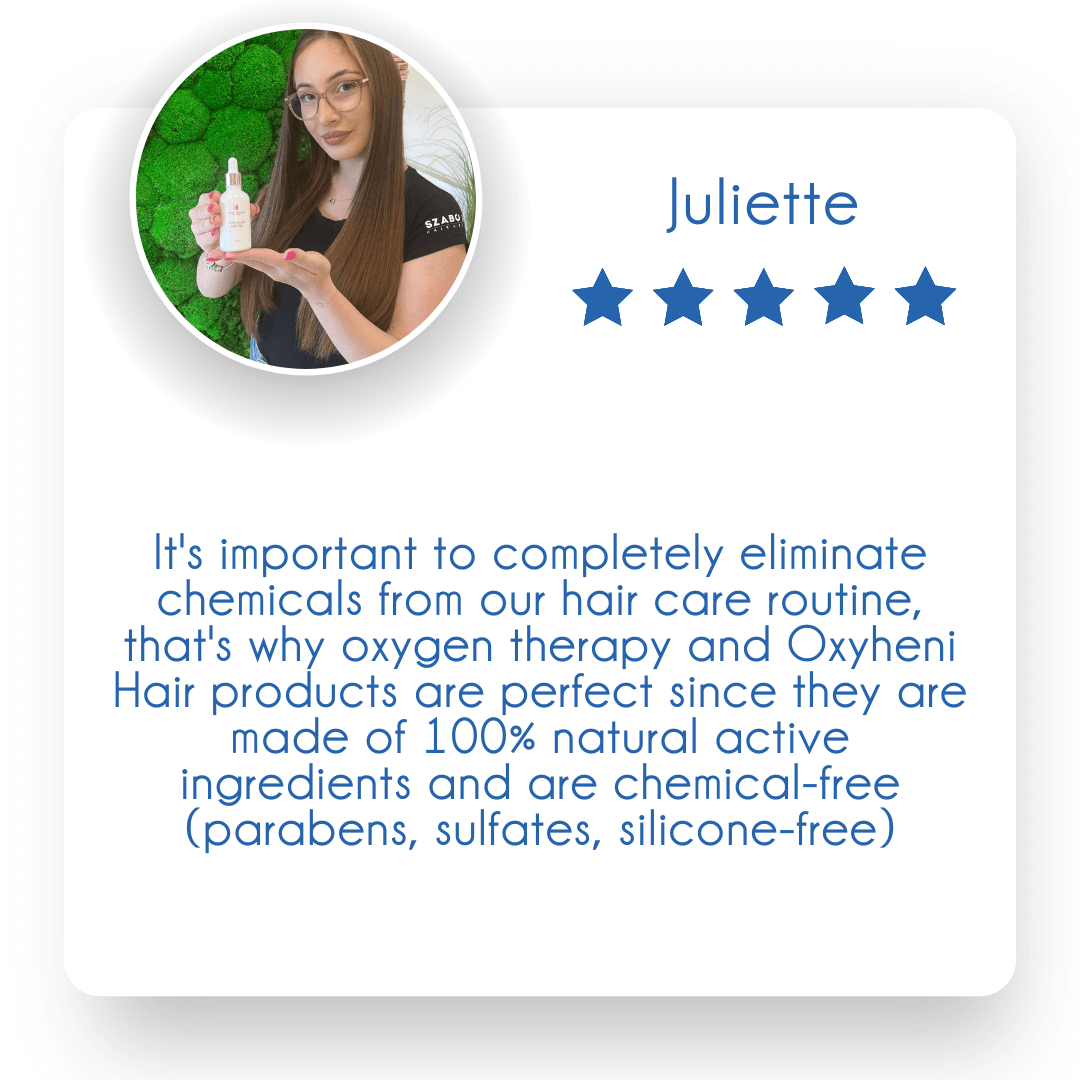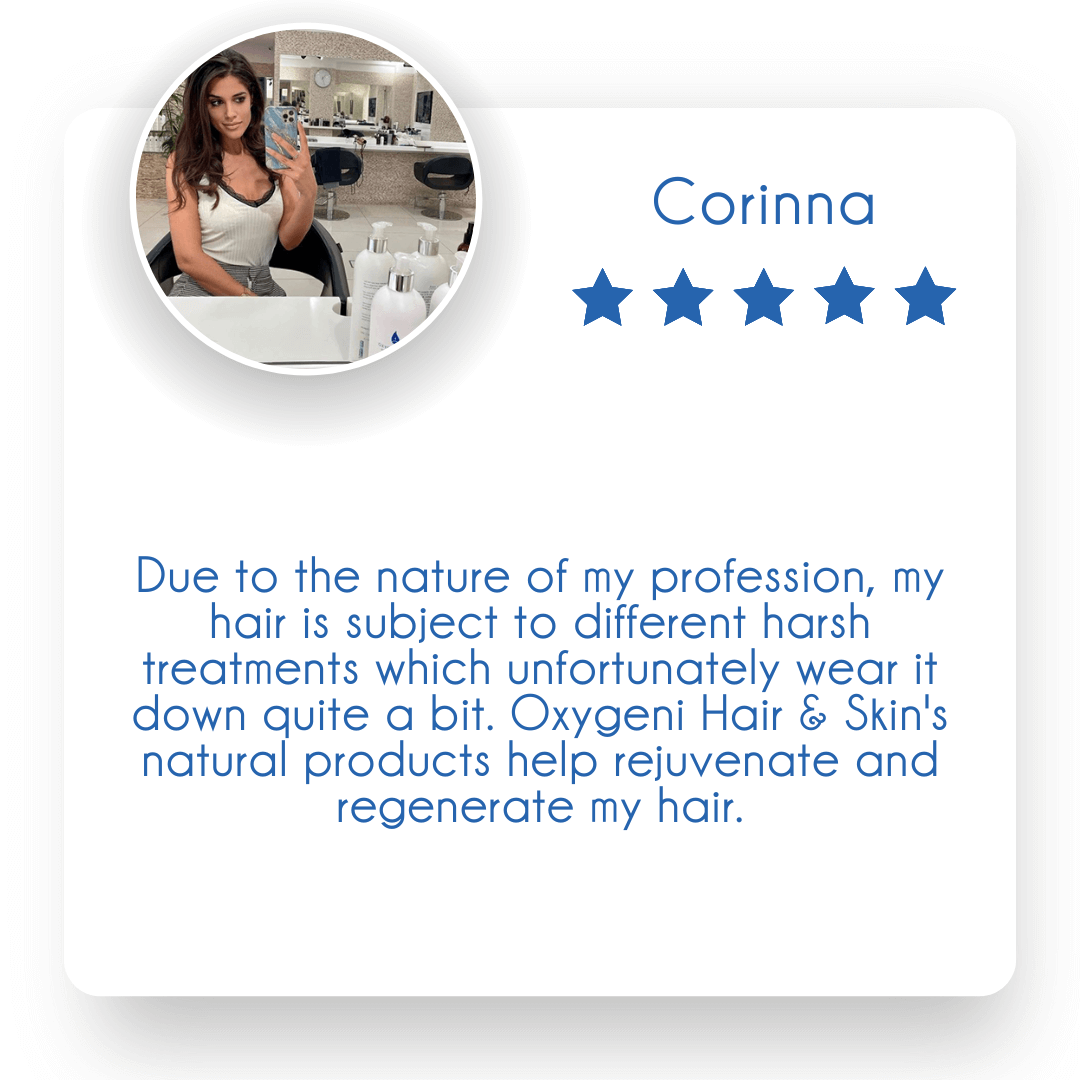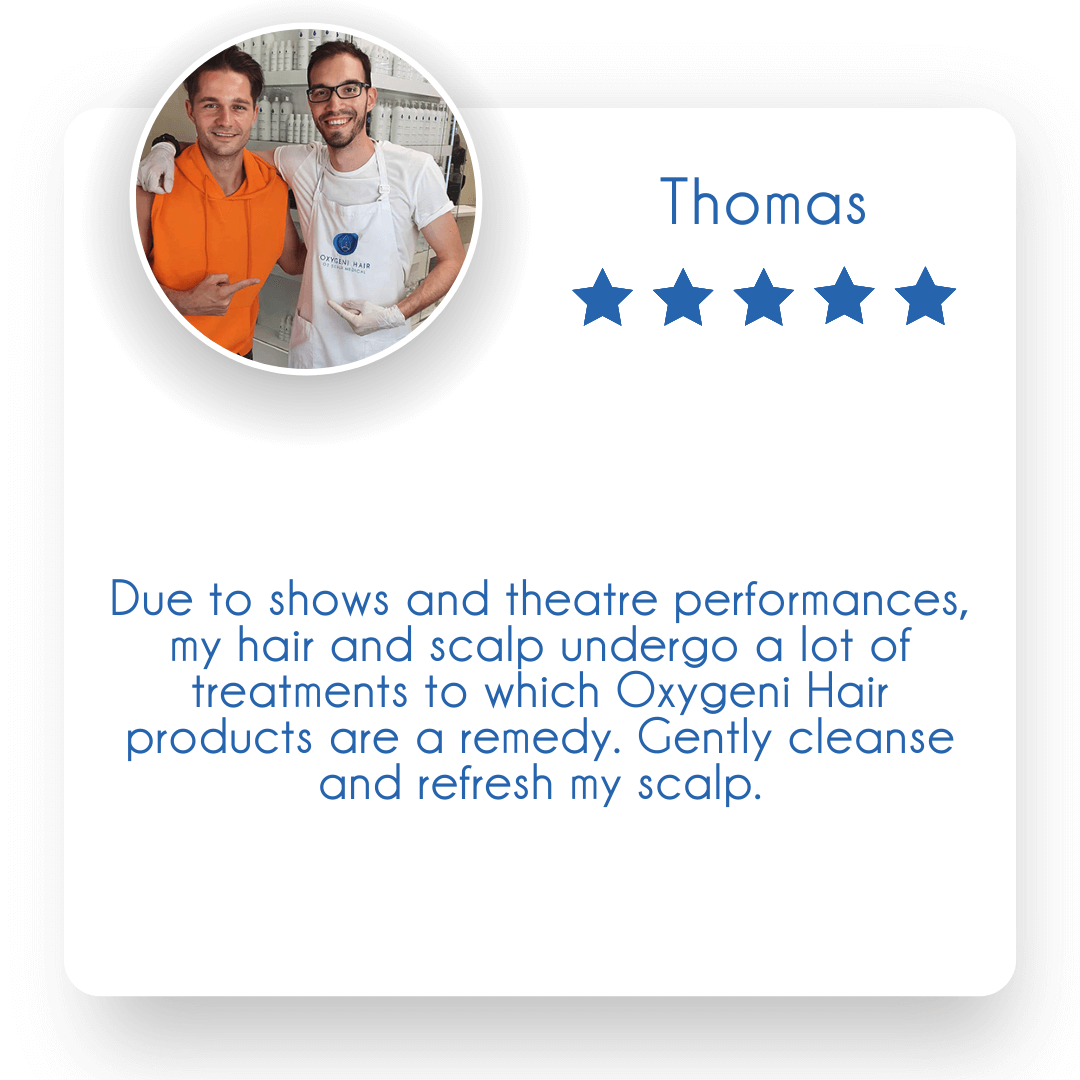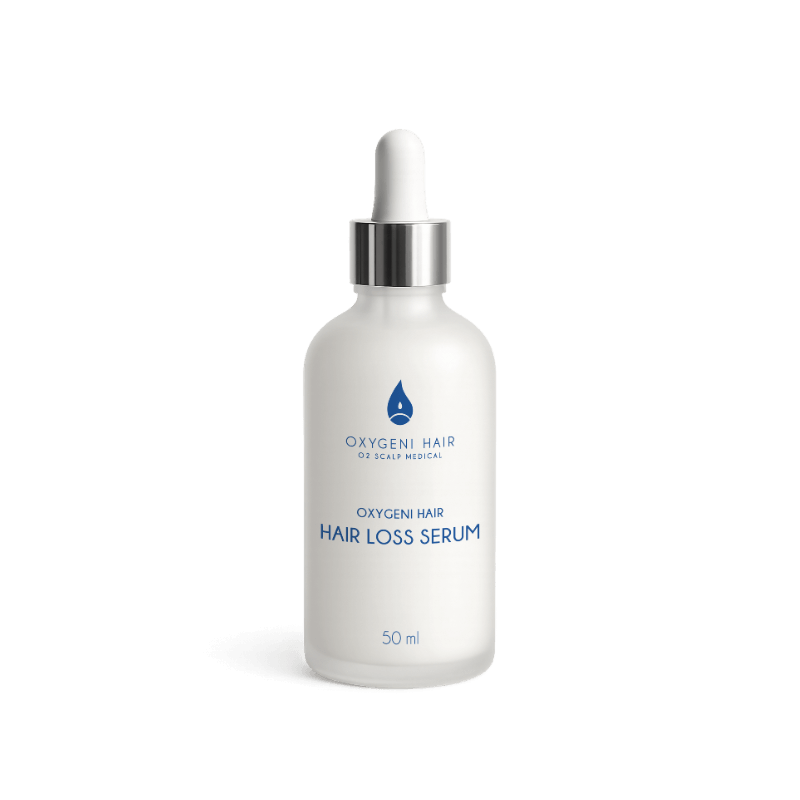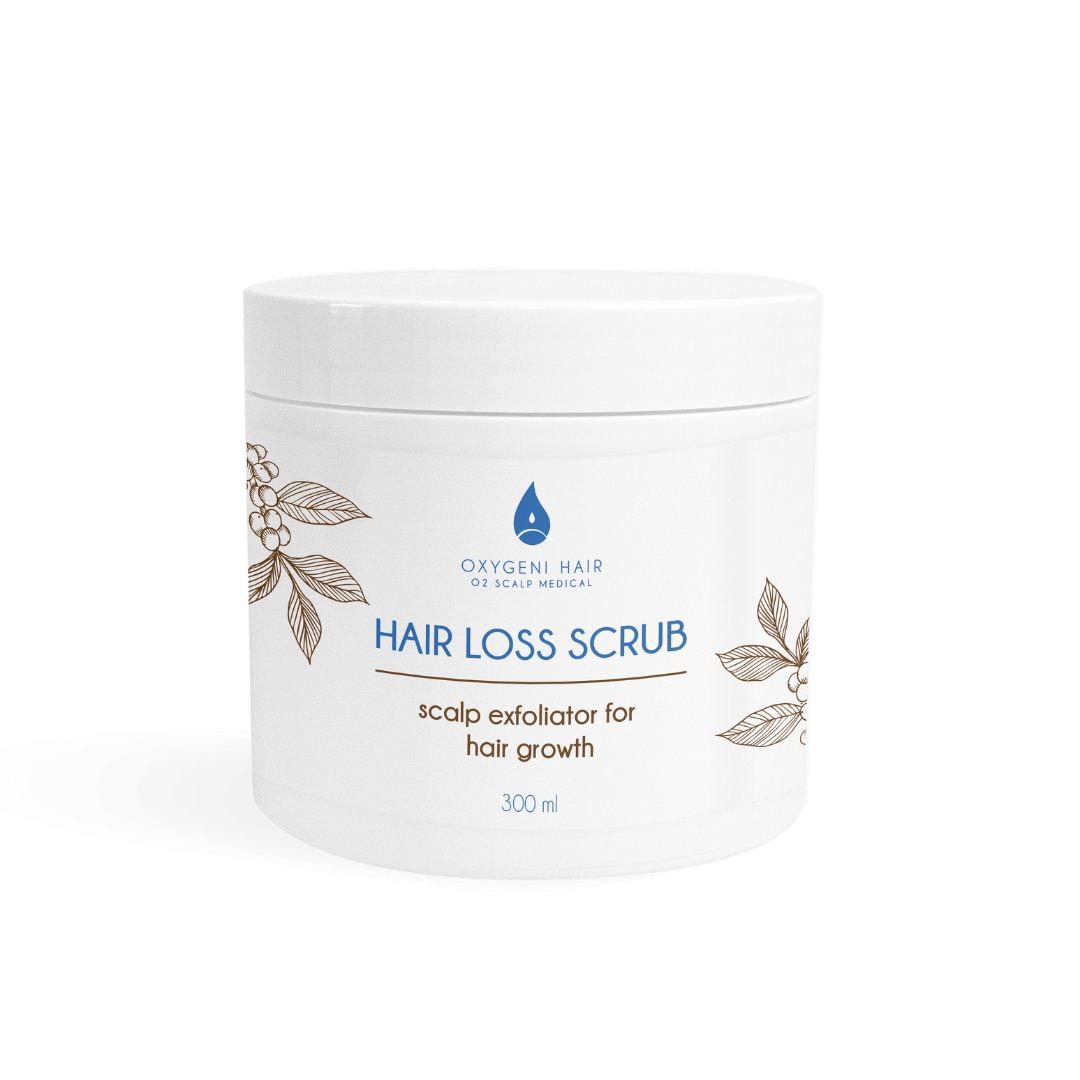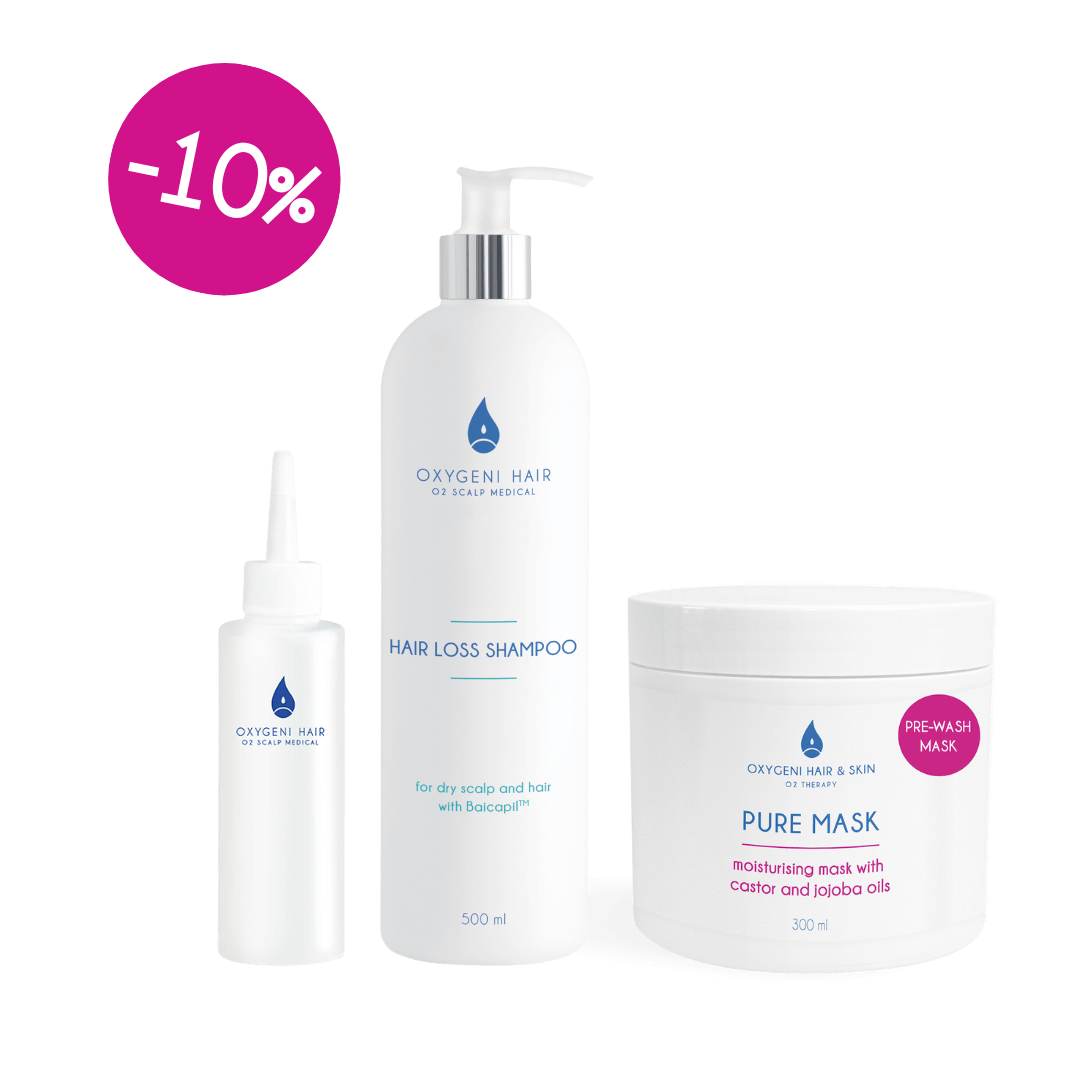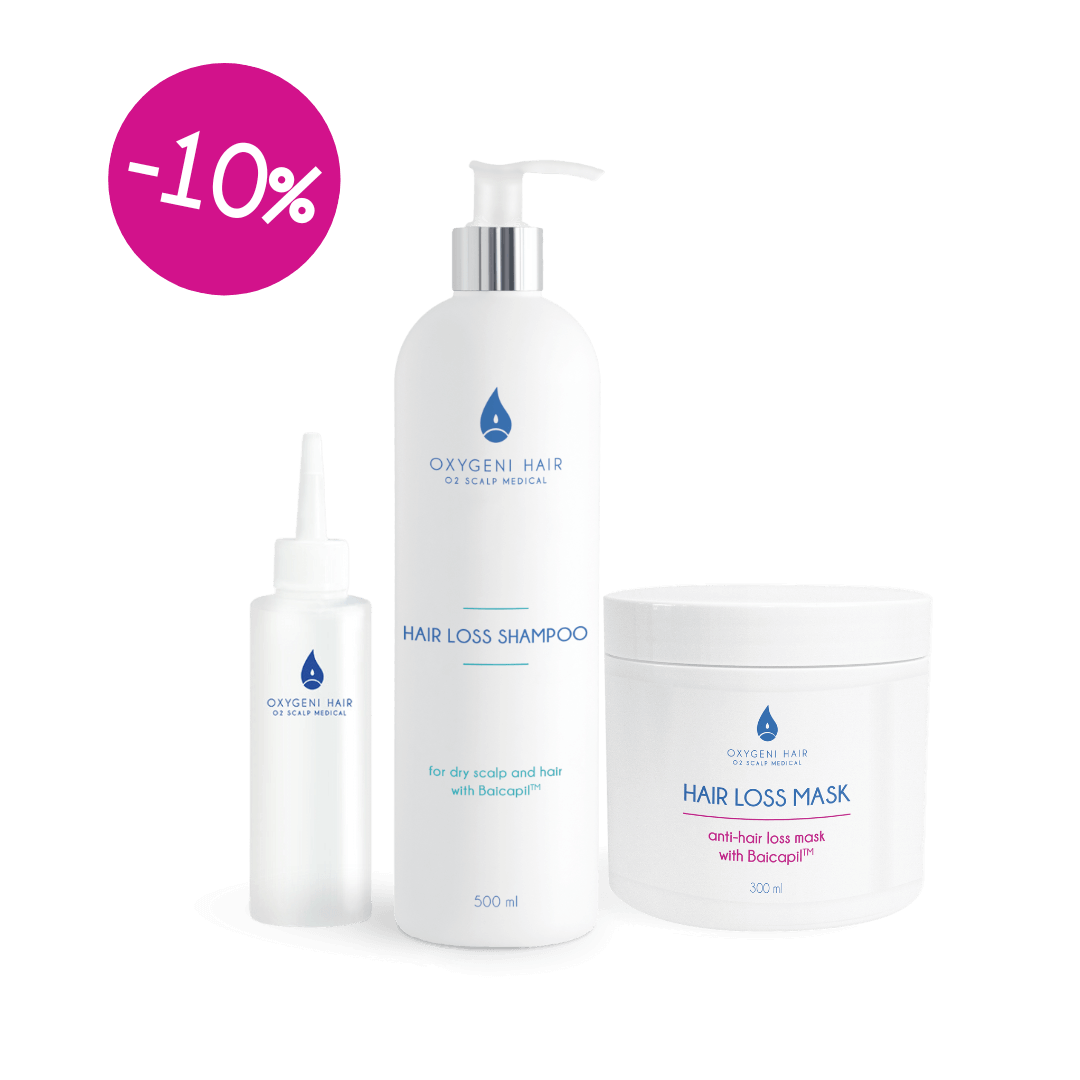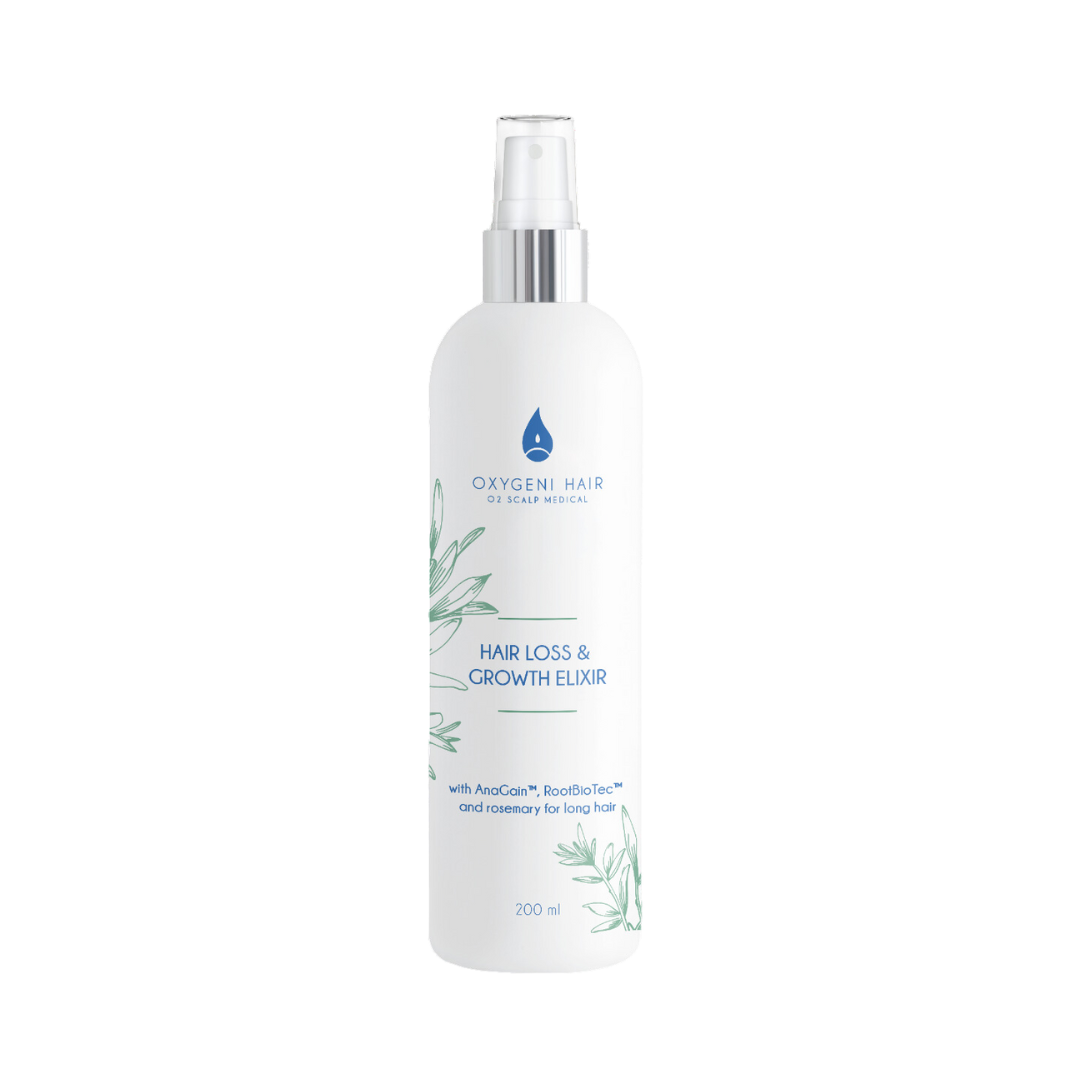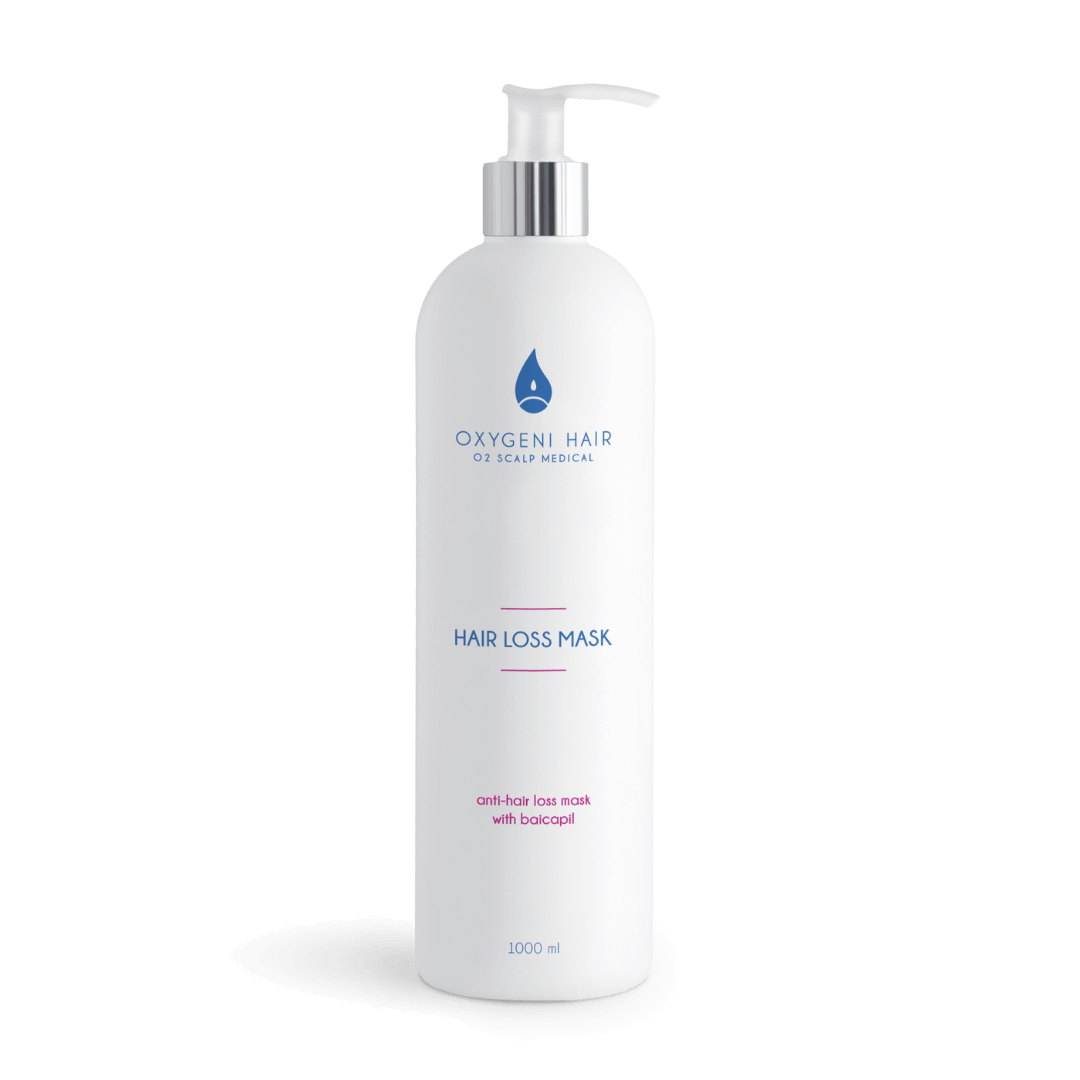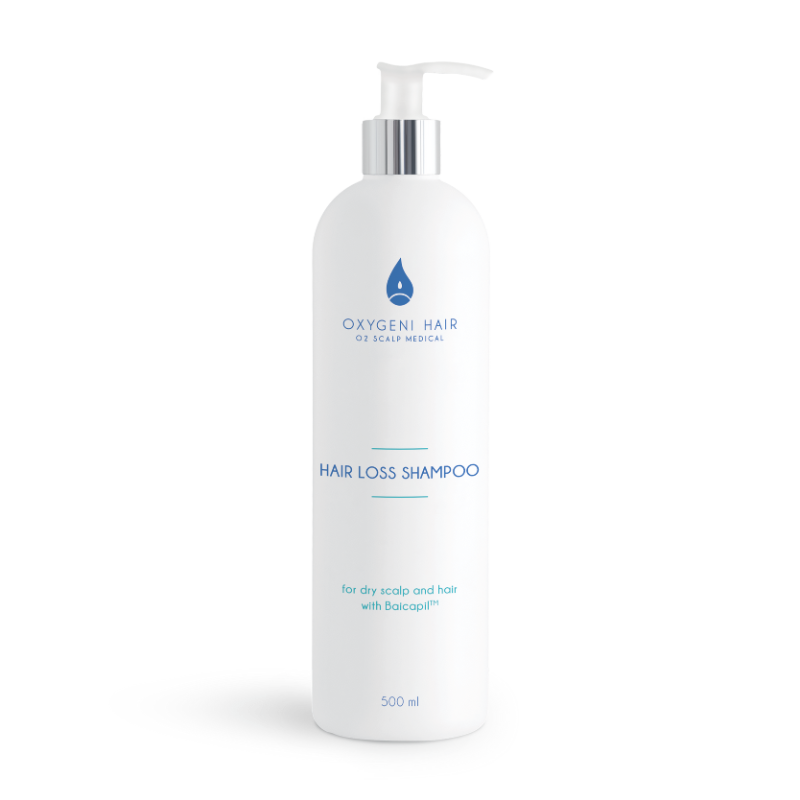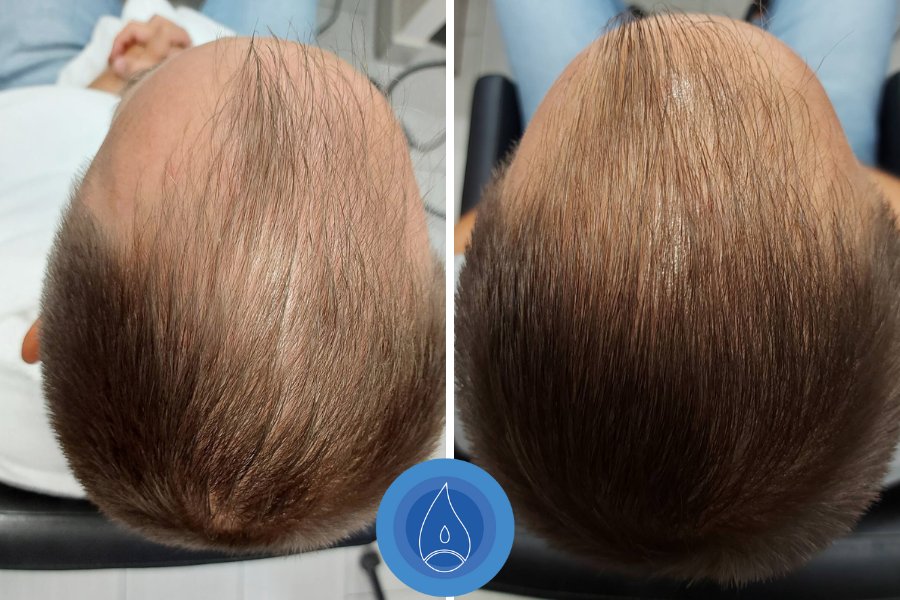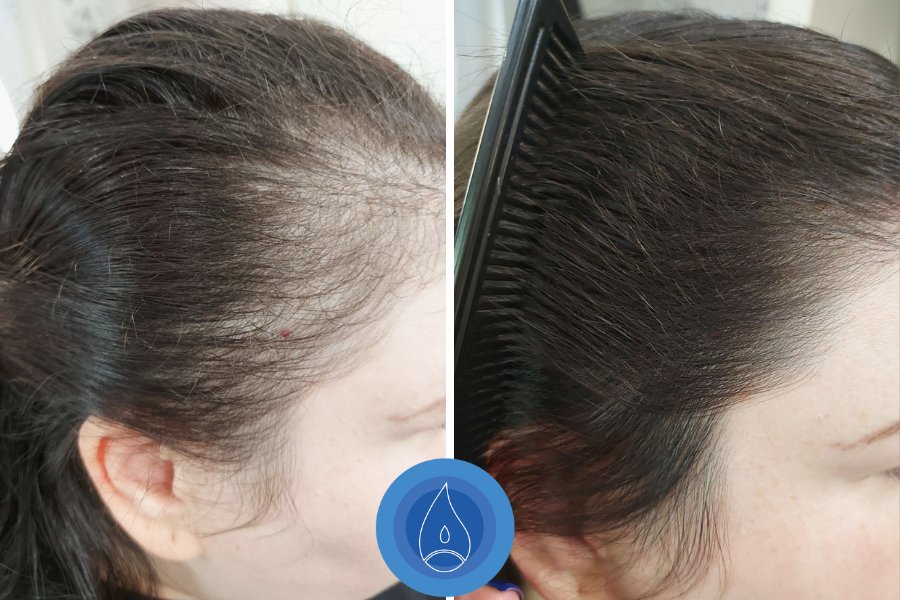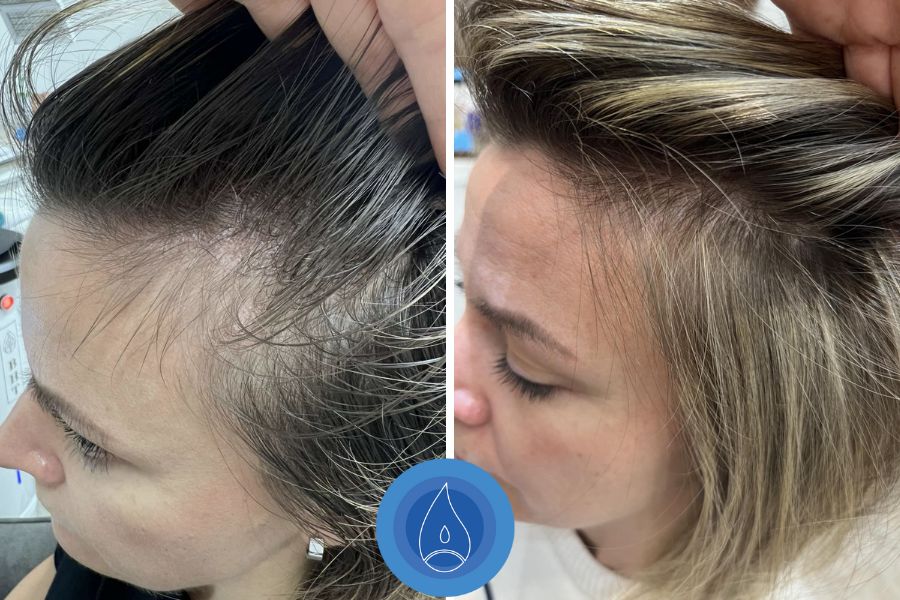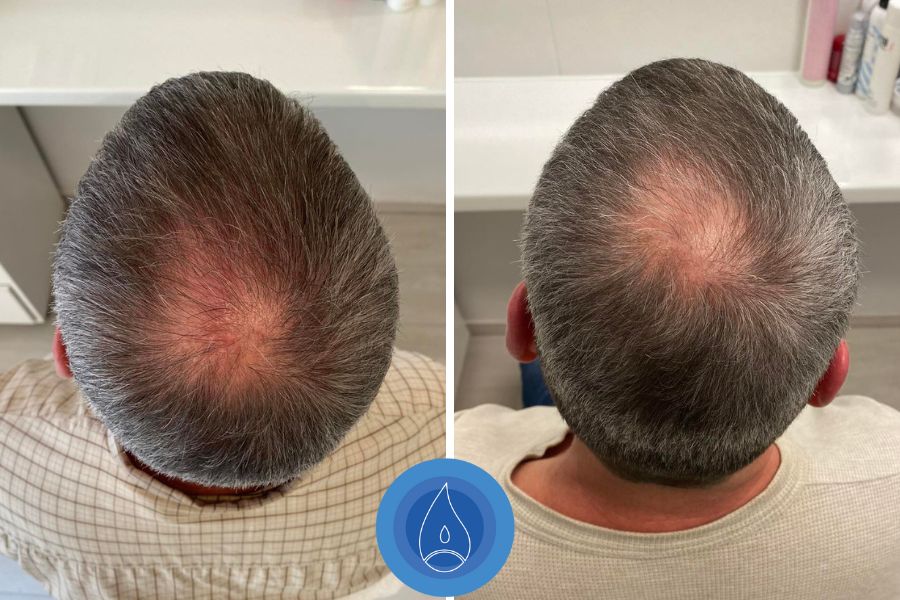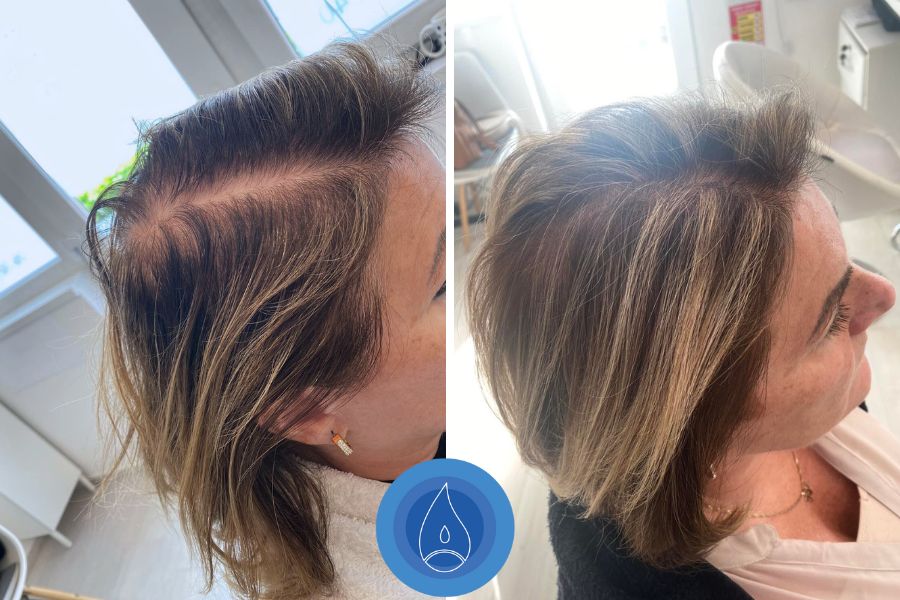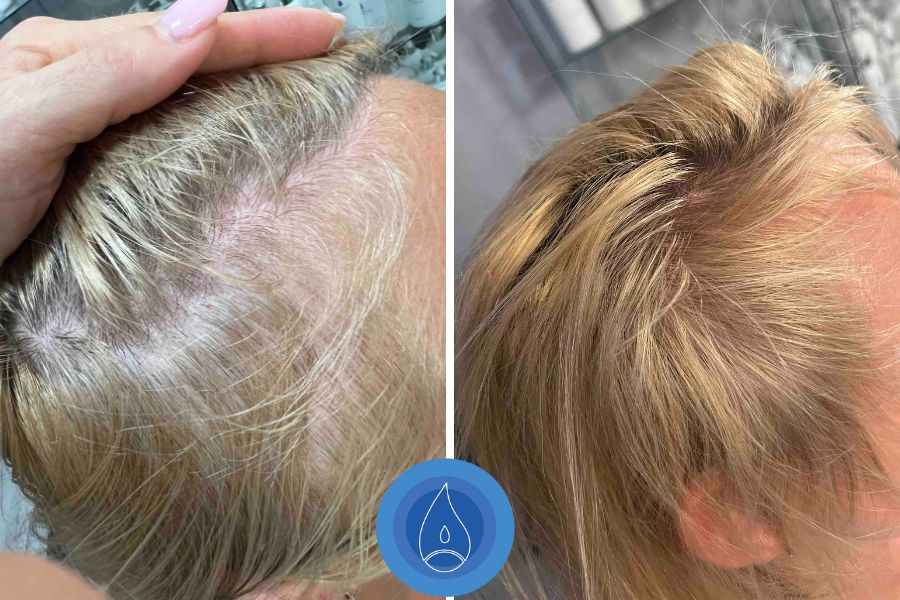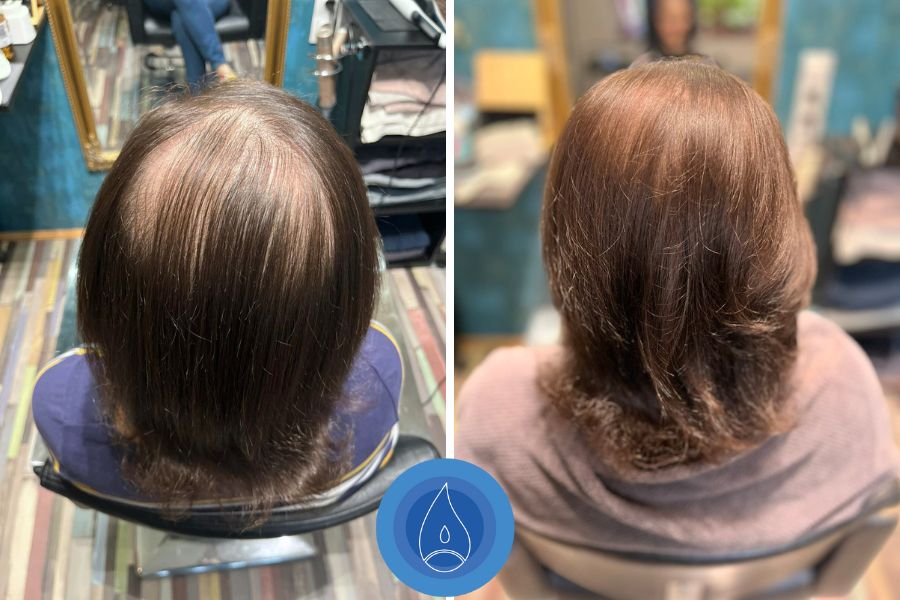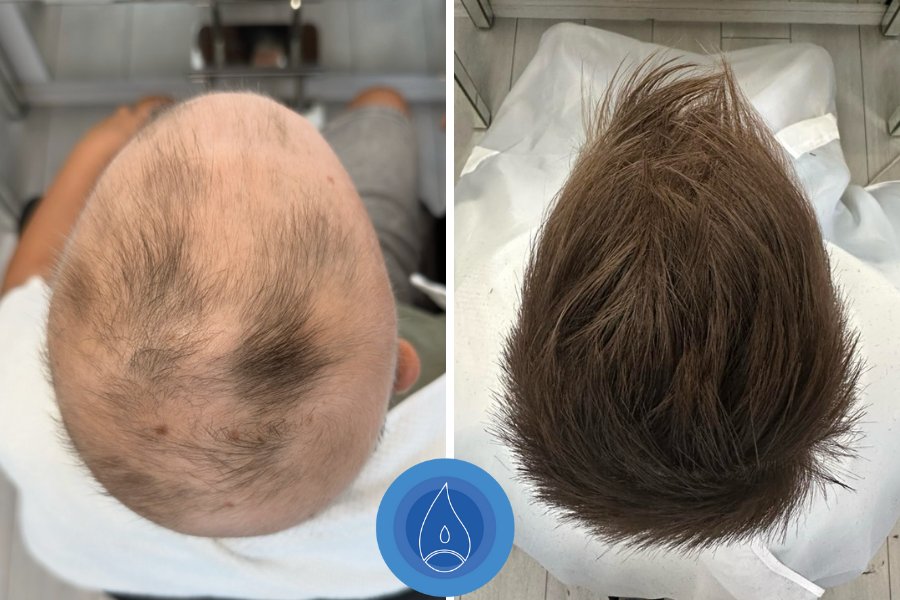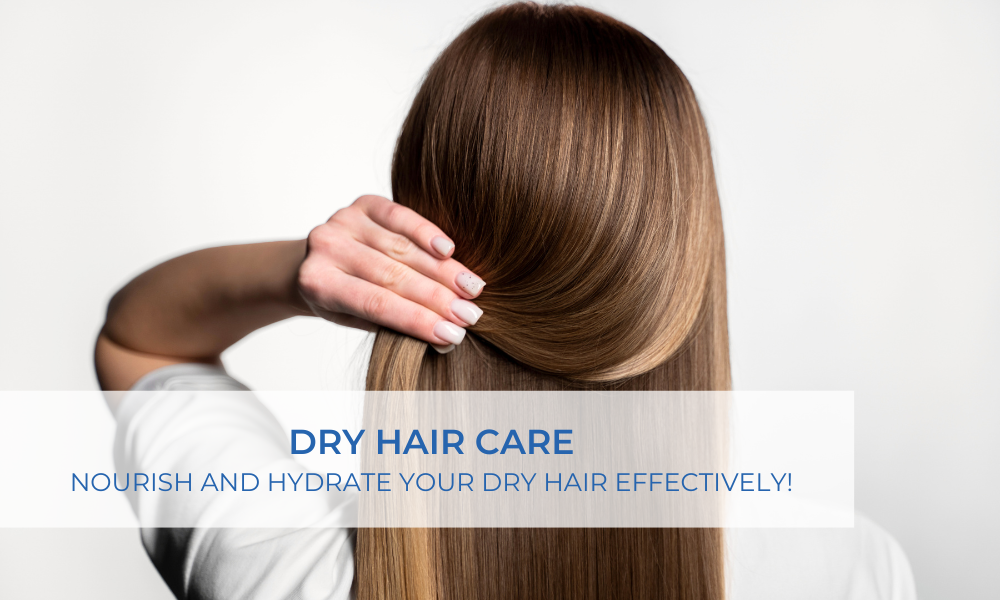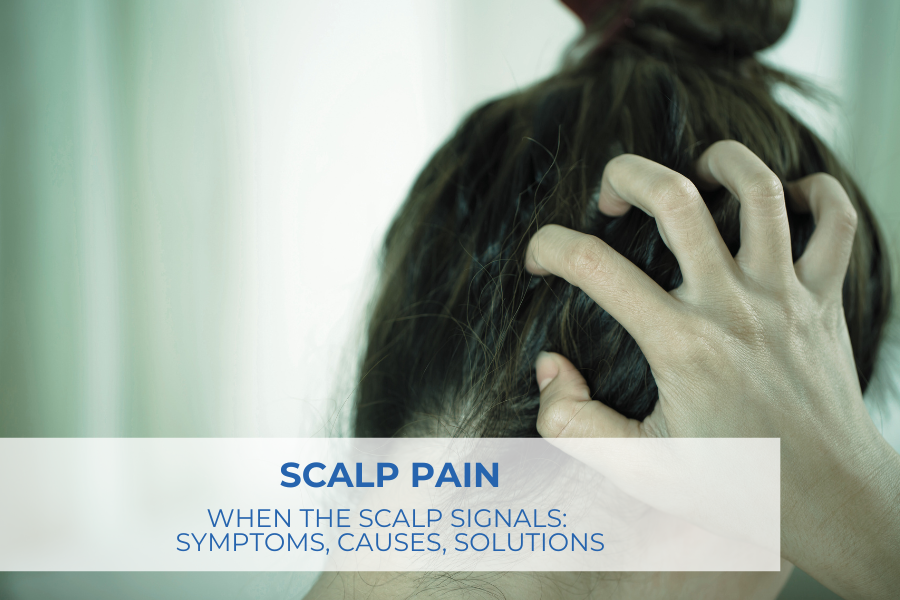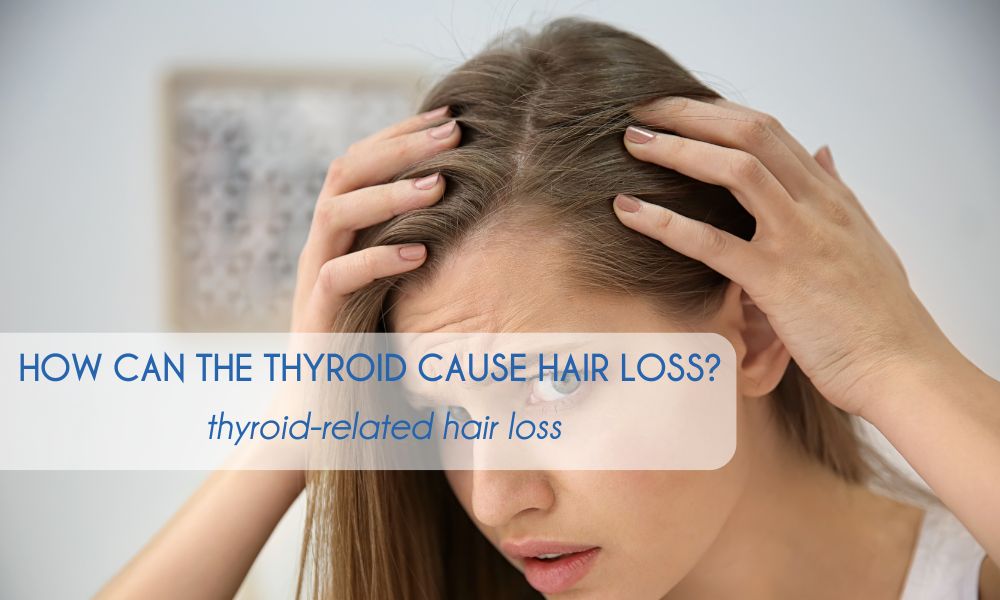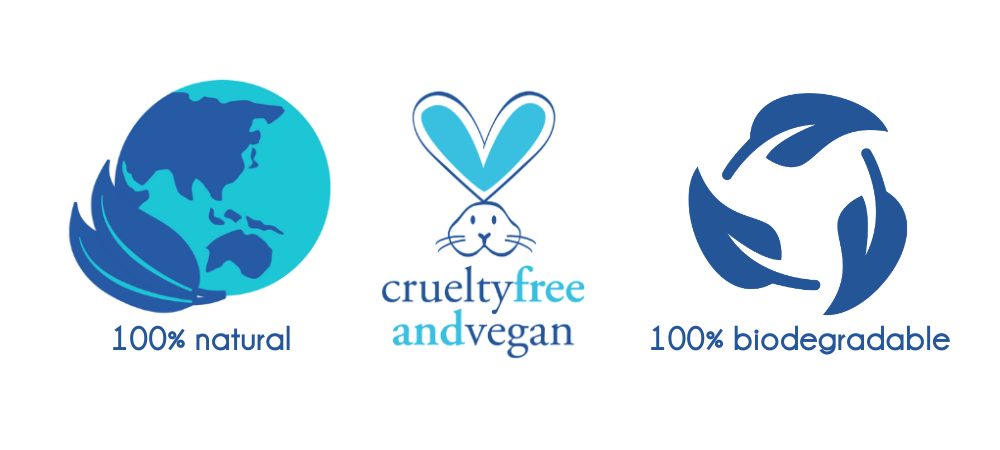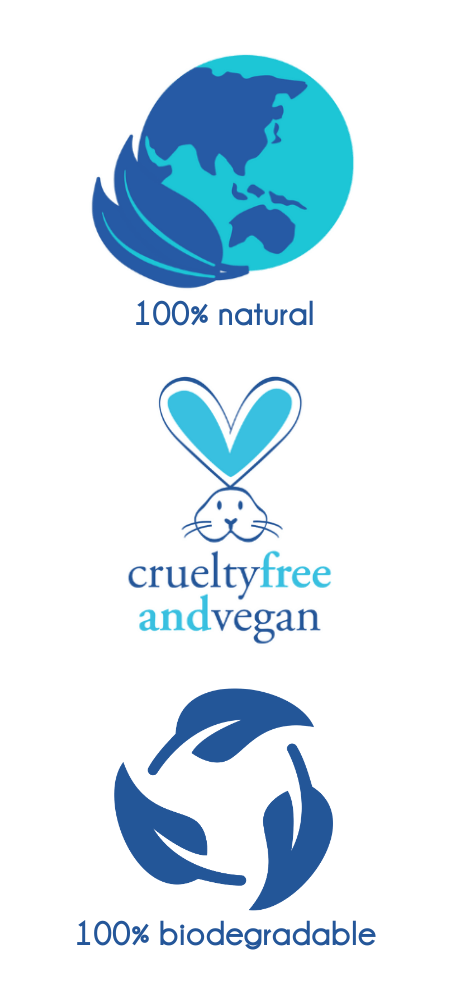Severe hair loss treatment
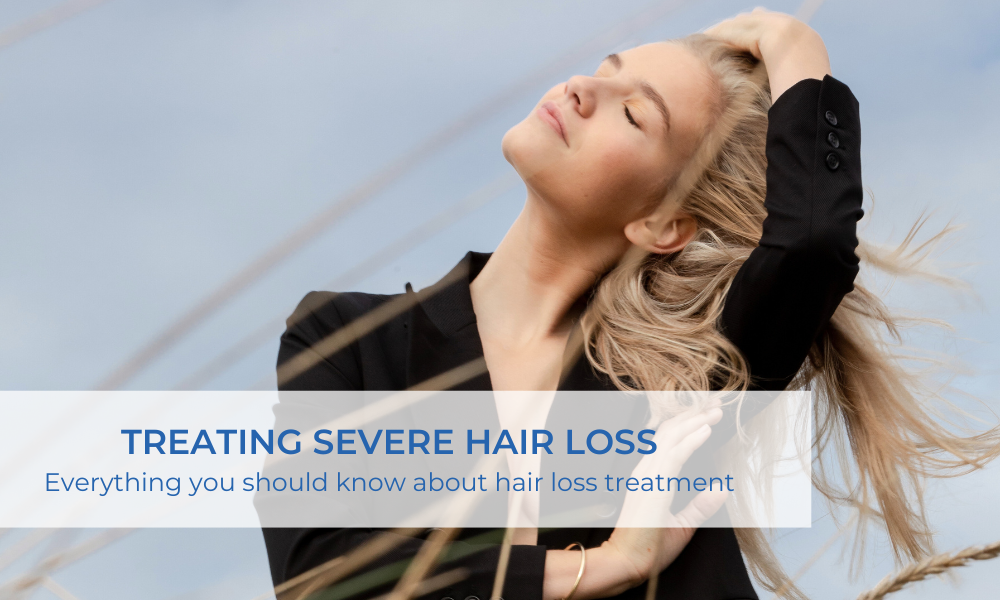
SEVERE HAIR LOSS treatment – Everything You Need to Know for Healthy Hair
Have you noticed more hair strands in your brush or clogging your shower drain? These small signs might not seem alarming at first, but if hair loss persists, it can become a real concern. Severe hair loss doesn’t just affect our physical appearance—it impacts us on a deeper level. Thick, healthy hair symbolizes youth, vitality, and confidence. When we start losing it, it can feel like we’re losing control over our own bodies.
Most people see their hair as a fundamental part of their identity. That’s why, when it starts thinning or falling out noticeably, the emotional impact can be significant. Hair loss is more than just a cosmetic concern—it’s a signal that something may be off in our body or lifestyle. Addressing severe hair loss isn’t just about appearance; it’s about restoring balance and well-being.
How does hair loss affect self-confidence and quality of life?
Hair loss directly impacts self-confidence. Those struggling with severe hair loss often avoid public situations, feel insecure in social interactions, or even become more withdrawn at work. A hairstyle or a well-chosen haircut is a way to express individuality, so when this option becomes limited, it can lead to frustration and a sense of helplessness.
Hair loss negatively affects not only appearance but also quality of life. Worrying about the issue, searching for treatments, and facing frequent disappointments can be a significant source of stress. The emotional burden may even lead to psychosomatic problems, further worsening hair loss, creating a vicious cycle.
What counts as severe hair loss?
The hair life cycle is a natural process consisting of three phases: the anagen, catagen, and telogen phases. The anagen phase is the growth period, lasting for years, during which hair strands lengthen. This is followed by the catagen phase, when hair growth stops, and then the telogen phase, which is the resting period. At the end of the telogen phase, the hair strand sheds, making way for a new one.
Due to this continuous renewal process, losing 80-100 hairs per day is considered completely normal. This is part of natural hair shedding, which typically does not cause visible thinning, as new hairs grow in their place.
However, if hair loss significantly exceeds this amount or if noticeable thinning occurs, it may be classified as abnormal hair loss. In such cases, it is essential to investigate the underlying causes, which can range from hormonal imbalances and stress to illnesses or external factors.
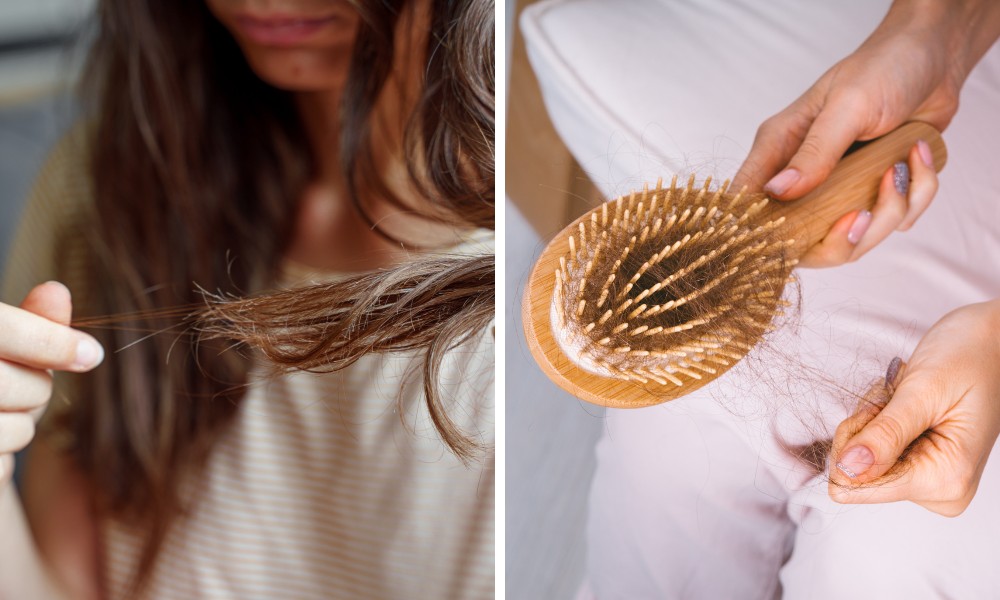
When is it advisable to see a doctor?
Certain signs may indicate that there are more serious issues behind the hair loss. If any of the following symptoms occur, it is advisable to consult a specialist:
Losing more than 100 hair strands per day: When an unusually large amount of hair accumulates in the comb or shower.
Patchy hair loss: If hair completely disappears from certain areas, as seen in alopecia areata.
Inflammation or irritation on the scalp: This can manifest as pain, itching, redness, or flaking.
Visible thinning: If the hairline recedes or the hair appears thinner than before. A trichologist, dermatologist, or hair specialist can help determine the exact cause of hair loss. If necessary, they may request laboratory tests, such as hormone, iron, or zinc level checks, or an examination of thyroid function.
Early diagnosis is crucial because many cases of hair loss can be reversed with proper treatment, and starting oxygen therapy in time can prevent further hair loss.
The possible causes of severe hair loss
The treatment of severe hair loss is only effective if we fully understand the underlying cause of the issue. The factors behind hair loss can be internal (health-related), lifestyle-related, or external influences, which can play a role either individually or in combination.
Health factors
Health factors play a key role in hair loss, with hormonal changes being particularly significant. Hormones play a central role in the functioning of hair follicles, so any imbalance can lead to hair loss. For example, during pregnancy and the postpartum period, hormonal changes often cause sudden hair loss, which is usually temporary. In contrast, during menopause, a decrease in estrogen production can lead to thinning hair and increased hair shedding, requiring targeted hormonal therapy. Similarly, thyroid dysfunction, whether hypo- or hyperthyroidism, can cause significant hair loss, so restoring the proper hormonal balance is essential.
Autoimmune diseases, such as alopecia areata, result from a malfunction of the immune system, where the body attacks its own hair follicles. This condition can cause patchy hair loss, and in severe cases, the entire body’s hair may be affected. The treatment of such conditions involves regulating the immune system and reducing inflammation. Additionally, nutritional deficiencies, such as iron deficiency, zinc deficiency, or biotin deficiency, can directly contribute to hair loss, as these substances are essential for the healthy functioning of hair follicles.
Lifestyle factors
Lifestyle factors include stress and lack of sleep, which can significantly weaken the function of hair follicles. Increased cortisol levels due to chronic stress and poor sleep quality can cause hair strands to enter the resting (telogen) phase prematurely. Addressing these issues through stress management techniques and improving sleep quality is essential. Improper hair care habits, such as frequent use of heat treatments, hair dyes, and other chemicals, can also damage the hair structure, leading to hair loss. To prevent such problems, it is advisable to avoid habits and substances that cause hair damage and replace them with gentler methods.

External factors
External factors include environmental influences such as air pollution and UV radiation, which negatively affect hair health. Pollutants in the air can clog the pores on the scalp, while UV rays damage the keratin structure of the hair, drying it out and weakening the strands. Protection against such effects is crucial for protecting both the scalp and hair.
The treatment of severe hair loss is a complex process that depends on understanding and addressing the underlying causes. Whether it is due to health issues, lifestyle habits, or environmental factors, personalized treatment, oxygen therapy, and preventive measures are essential in every case.
The treatment options for severe hair loss
The treatment of severe hair loss can involve a variety of approaches, and combining them can lead to significant results. From medical interventions to adopting a proper diet and adequate treatment like oxygen therapy, every step is crucial in restoring hair health.
Medical treatments
In the treatment of severe hair loss, medical interventions play a particularly important role when the problem stems from hormonal imbalances. In such cases, the first step is a thorough diagnosis to identify potential hormonal disorders, such as hypothyroidism or hyperthyroidism, as well as the hormonal changes that occur during menopause. Treatments aimed at restoring hormonal balance include hormone replacement therapy, which provides the opportunity to supplement estrogen, thyroid hormones, or other missing hormones. These treatments help restore the body’s internal balance, which directly affects the functioning of hair follicles and reduces the extent of hair loss.
Táplálkozás és étrendkiegészítők
Hair health is closely linked to the quality of your diet, as the proper functioning of hair follicles requires a regular intake of essential vitamins and minerals. When treating severe hair loss, replenishing biotin, also known as vitamin B7, is crucial, as it is indispensable for keratin production, the primary building block of hair. A biotin deficiency weakens the hair strands and makes them brittle and thin, potentially leading to hair loss.
Vitamin D is also fundamental in combating hair loss, as it supports hair follicle regeneration and promotes the growth of new strands. To maintain adequate vitamin D levels, it is essential to spend time in sunlight and consume foods and supplements rich in this vital nutrient. Additionally, omega-3 fatty acids play a key role in maintaining healthy hair follicles. These beneficial fats improve scalp hydration, reduce inflammation, and enhance hair elasticity and durability.
When addressing severe hair loss, it is worth paying attention to diet, as certain foods naturally support hair follicle function. Fish such as salmon, mackerel, and sardines are rich in omega-3 fatty acids and excellent sources of protein, helping to strengthen hair strands. Eggs, due to their biotin and protein content, are another essential component of a hair-friendly diet. Leafy green vegetables like spinach and kale are packed with iron and vitamin C, which contribute to a better oxygen supply for the hair follicles. Nuts and seeds, including almonds, walnuts, and sunflower seeds, provide zinc, selenium, and omega-3 fatty acids, all of which are essential for maintaining healthy hair.
Tips to Prevent Severe Hair Loss
Treating severe hair loss is not just about addressing an existing issue, it’s also about prevention. Maintaining healthy hair requires both lifestyle adjustments and targeted hair care solutions, with the right products playing a crucial role in this process. Oxygeni Hair Loss products, such as the Hair Loss Serum and Hair Loss Scrub, are specially formulated with natural ingredients and innovative technology to support both scalp and hair health.
The Oxygeni Hair Loss Serum is designed specifically to combat severe hair loss. One of its key ingredients, AnaGain™, derived from organic pea sprouts, has been clinically proven to stimulate hair growth, reduce hair shedding, and extend the life cycle of hair strands. Rich in vitamin E, the serum also protects hair follicles from oxidative stress and improves scalp circulation, ensuring optimal nutrient supply. With regular use, it not only reduces hair loss but also promotes the growth of new, stronger strands, leaving the hair silkier, healthier, and easier to manage.
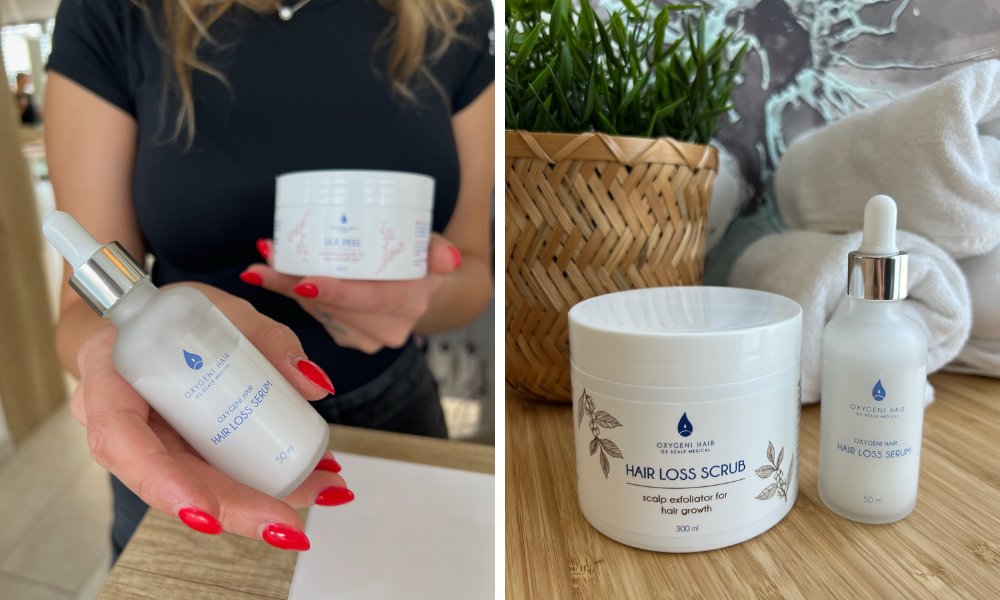
Another product that supports hair health is the Oxygeni Hair Loss Scrub, which, with its deep cleansing properties and regenerative ingredients, helps maintain the optimal condition of the scalp. In addition to AnaGain™, it contains bamboo particles and caffeine, which gently remove dead skin cells and impurities while stimulating hair growth. Rosemary extract and salicylic acid, with their antibacterial and anti-inflammatory properties, support scalp health, while the bamboo particles provide gentle exfoliation, even for sensitive skin.
Recommended Products and Packages:
Lifestyle factors also have a significant impact on hair health. Stress, for example, is one of the most common causes of hair loss, as it can cause hair strands to enter the resting phase prematurely, leading to hair shedding. Rethinking styling habits is also essential. To minimize heat damage, it’s advisable to use heat protection sprays and dry or style hair at lower temperatures.
When to Consult a Specialist?
One of the most important steps in treating severe hair loss is recognizing when professional help is needed. While hair loss is often a natural process, certain symptoms may indicate a more serious underlying issue that can only be accurately identified and treated through thorough examinations.
On average, losing 80-100 hair strands per day is normal, but if you’re losing significantly more, it could be a sign of severe hair loss. If you regularly find large amounts of hair in your comb, shower, or on your pillow, it’s a good idea to consult a trichologist. Hair loss can occur in a diffuse pattern, where there is even thinning across the scalp, or in patches, which may often indicate an autoimmune condition.
If the hairline recedes, hair strands become thinner, or bald patches appear in certain areas, this may indicate a more severe form of hair loss. Such hair loss can be caused by hormonal issues, genetic predisposition, or external factors, all of which can be identified by a specialist.
If the scalp is inflamed, painful, itchy, flaky, or peeling, it could indicate skin conditions such as seborrheic dermatitis, psoriasis, or infections. These not only threaten scalp health but can also trigger severe hair loss. A sensitive, reddened scalp may also be a sign of an allergic reaction to hair care products, which should also be addressed by a specialist.
If the hair suddenly becomes drier, more brittle, and loses its shine, it could indicate a nutrient deficiency or hormonal issues. A trichologist can determine the underlying deficiency through laboratory tests and recommend targeted treatments.
A trichologist’s role goes far beyond surface-level treatments for hair loss, as they focus on uncovering the root causes of the problem and conducting a comprehensive analysis of the entire body. Hair loss is a complex phenomenon influenced by numerous factors, including genetics, hormonal changes, stress, or nutritional deficiencies. A trichologist’s goal is to identify the underlying causes with a holistic approach and offer effective solutions for their patients.
Medical History: The Starting Point
The first step in the consultation is taking a detailed medical history, during which the trichologist thoroughly questions the patient. This process involves not only investigating the onset of hair loss and its possible triggers but also assessing lifestyle, diet, stress sources, and any underlying health conditions. Important information might include recent hormonal changes (such as pregnancy or menopause), medication treatments, or significant stress factors. These are all factors that can impact the condition of the hair.
Scalp and Hair Follicle Examination
The next step is a thorough examination of the scalp and hair follicles, conducted by the trichologist using specialized tools. With the help of a microcamera analysis, the structure of the scalp, the condition of the hair follicles, and any inflammation or clogged pores can be observed under 200x magnification. This examination enables precise identification of the type and extent of hair loss, such as whether it is diffuse, patchy, or androgenic alopecia. Such a detailed analysis is essential for developing an appropriate treatment plan.
Laboratory Tests: Uncovering Internal Factors
Hair loss can often be caused by internal factors such as nutrient deficiencies, hormonal imbalances, or inflammatory processes. Accordingly, the trichologist typically recommends laboratory tests to help accurately identify any discrepancies. For example, a blood test can check for iron deficiency, zinc and vitamin D levels, as well as thyroid function. These data are essential for the specialist to get a complete picture of the body’s condition and understand how these factors affect hair loss.
Egyénre szabott kezelési tervek kialakítása
One of the primary roles of the trichologist is to create a personalized treatment plan for their guests. This plan is tailored to meet individual needs and can consist of several components. Initially, the guest is provided with dietary advice to ensure that the hair follicles receive the necessary nutrients for optimal functioning. Specialized supplements such as biotin, iron, zinc, or omega-3 fatty acids are often recommended to promote hair growth and strength.
As part of the treatment plan, the trichologist may also suggest specific hair care products. These formulations contain active ingredients that specifically support the regeneration of the hair follicles and the health of the scalp. For example, shampoos, serums, or masks that stimulate blood circulation to the scalp, reduce inflammation, and encourage healthy hair growth.
Long-term support and follow-up
The work of a trichologist, therefore, is not only focused on addressing the external signs of hair loss but also on uncovering and treating the deeper underlying causes. This way, guests can experience not only a reduction in hair loss but also contribute to maintaining the health of their hair in the long term. Trichological treatment does not end with the initial diagnosis and the creation of a treatment plan. The specialist regularly monitors the guest’s scalp and hair condition and, if necessary, adjusts the treatment strategy. Hair growth is a slow process, so regular follow-up exams help ensure that both the guest and the trichologist are aware of the therapy’s effectiveness.
How can trichological oxygen therapy help?
In the treatment of severe hair loss, modern technologies are playing an increasingly significant role. One of the most promising and innovative methods is trichological oxygen therapy, which is highly effective not only in reducing hair loss but also in restoring the health of the scalp.
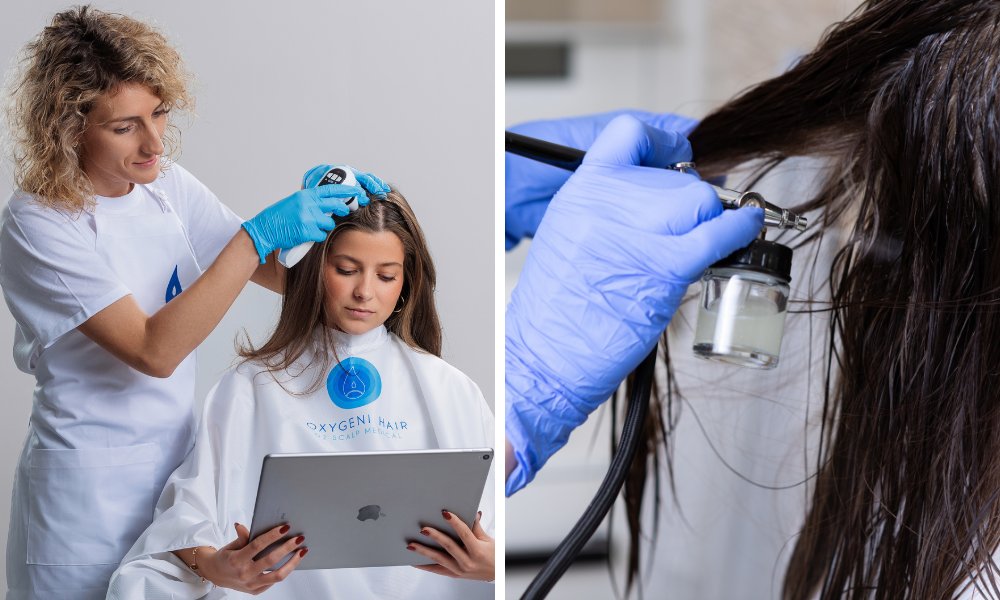
What is the essence of oxygen therapy?
Hair rejuvenating oxygen therapy is a specialized treatment in which the scalp is treated with pure, high-pressure oxygen. This non-invasive therapy has an impact on the following crucial areas:
The scalp’s lack of oxygen often leads to weakened hair follicles and hair loss. Oxygen therapy increases the oxygen supply to the cells, promoting the regeneration of hair follicles.
Oxygen stimulates blood circulation, thereby improving the absorption of nutrients and vitamins delivered to the hair follicles, which play a key role in healthy hair growth.
The antibacterial and anti-inflammatory effects of oxygen help alleviate scalp issues, such as inflammations, irritations, or psoriasis.
Oxygen therapy is a modern and effective treatment aimed at restoring the health of the scalp and hair follicles. Each stage of the process is carefully designed to maximize the beneficial effects of oxygen while providing a personalized solution for treating hair loss.
The central element of oxygen therapy is the supply of pure, high-pressure oxygen to the scalp. During the treatment, with the help of a special device, a mixture of vitamins, minerals, active ingredients, and pure oxygen is applied to the scalp, which immediately stimulates blood circulation and improves the oxygen supply to the hair follicles. As a result, the regeneration ability of the cells increases, inflammation decreases, and the natural balance of the scalp is restored.
The effectiveness of the therapy is further enhanced by the simultaneous application of serums and active ingredients. With the help of pure oxygen, under high pressure, these substances penetrate deeply into the layers of the scalp where they can exert their effects more effectively. Active ingredients such as plant extracts, vitamins, or peptides promote hair growth, strengthen the hair strands, and reduce hair loss. The treatment is completely painless and provides a relaxing experience for the guest.
Oxygen therapy results
The positive effects of the treatment can be felt and seen after just a few sessions. The scalp becomes healthier, cleaner, and less irritated, while the oxygen supply to the hair follicles improves, stimulating the growth of new hair. Oxygen therapy can be especially effective for diffuse hair loss, stress-related hair loss, or hormonal imbalances, and helps restore the natural shine and elasticity of the hair.
Thus, oxygen therapy is not just a treatment but a comprehensive solution that contributes to the long-term health of the scalp and hair while providing a pleasant, relaxing experience.
Who is oxygen therapy recommended for?
Oxygen therapy is a widely used treatment that not only targets hair loss but also provides comprehensive support for the health of the scalp and hair follicles. The treatment is particularly recommended for individuals experiencing various hair and scalp issues or those aiming to prevent such problems from developing. Below, we provide a detailed overview of who might find oxygen therapy an ideal choice.
Oxygen therapy is especially effective in cases where the level of hair loss is significant, and traditional methods such as medications or hair care products have not provided satisfactory results. During the procedure, the intense oxygen supply to the scalp enhances the function of hair follicles, promotes the growth of new hair, and reduces existing hair loss. Additionally, oxygen therapy supports the scalp’s natural regeneration, which is essential for achieving long-lasting results.
Inflammatory conditions, such as seborrheic dermatitis, eczema, or psoriasis, often damage the health of the scalp, leading to hair loss. During oxygen therapy, the application of pure oxygen and specialized active ingredients, due to their anti-inflammatory and antibacterial properties, help alleviate many scalp issues. The treatment promotes the restoration of the scalp’s natural balance, reduces irritation and itching, while supporting healthy hair growth.
Oxygen therapy is ideal not only for treating existing problems but also for prevention. Those who wish to maintain the health of their hair in the long term can experience significant benefits from the treatment. The regular application of oxygen and active ingredients helps maintain the optimal condition of the scalp, prevents the weakening of hair follicles, and strengthens the hair strands. It is especially recommended for those leading a stressful lifestyle or those more prone to hair loss due to hormonal changes (such as pregnancy or menopause).
The treatment of severe hair loss and the importance of personalized solutions
Severe hair loss treatment is a complex process, and its success depends on thorough examination and solutions tailored to individual needs. There are various potential causes behind hair loss, including hormonal changes, nutrient deficiencies, lifestyle factors, or external damaging effects. Accurately identifying the causes is essential for ensuring that the treatment is truly effective and delivers long-term results.
Hair loss is not just an aesthetic issue but often a warning sign from our body that something is amiss. Whether it’s hormonal imbalance, autoimmune diseases, or stress-induced telogen effluvium, a correct diagnosis is the foundation for successful treatment. Laboratory tests and trichological consultations help uncover the true causes of hair loss and ensure that the treatment is targeted and effective.
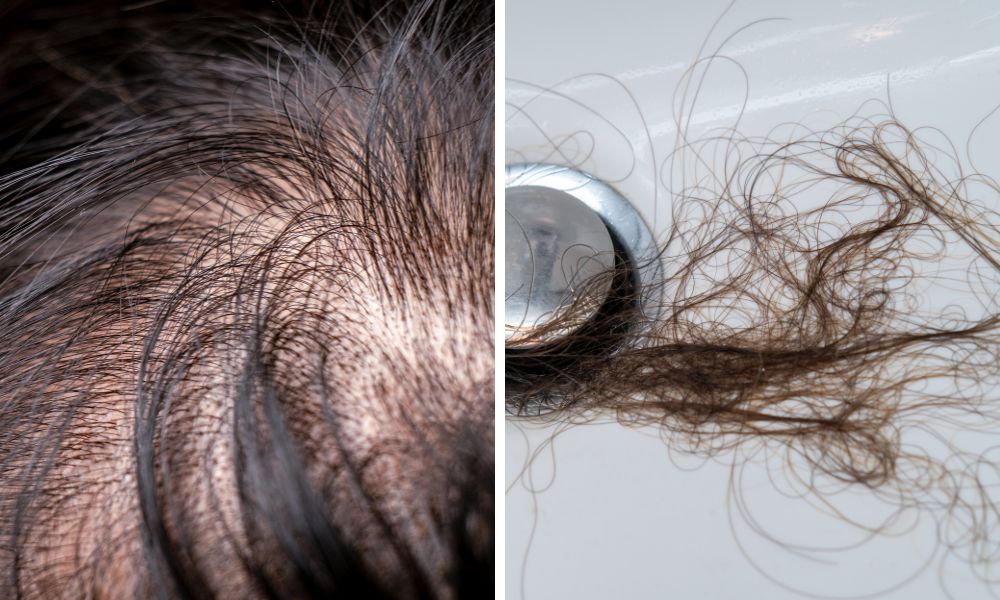
Treating severe hair loss is not a one-time intervention but a comprehensive process aimed at improving the health of the hair and scalp. Identifying the underlying causes and applying personalized solutions allows those struggling with hair loss to regain their hair’s vitality and self-confidence. Modern technologies, such as oxygen therapy, alongside innovative hair care products, ensure that hair loss is not only manageable but also preventable. Healthy hair and scalp contribute not only to aesthetic appearance but also to overall well-being.
Szerző: Gulyás Dzsenifer
OXYGEN THERAPY AND OXYGENI HAIR PRODUCT REVIEWS

